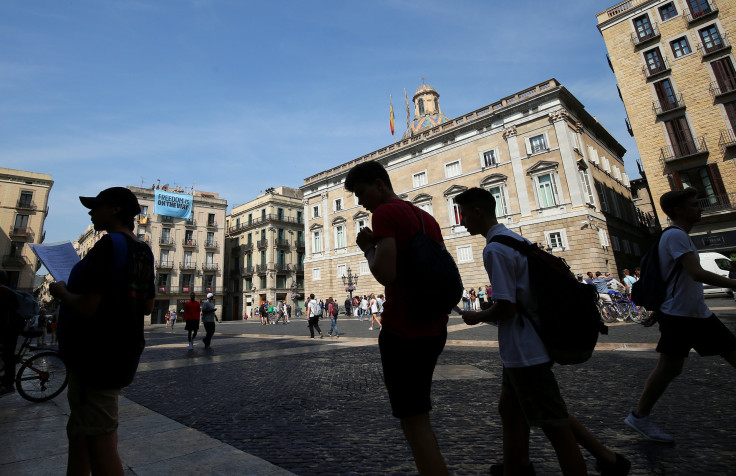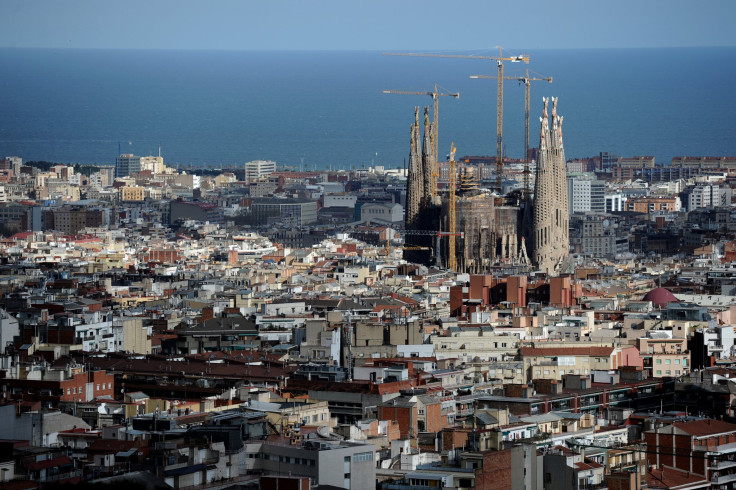Catalonia Secession From Spain: Independence Referendum To Be Held Oct 1

After months of confrontation with the Spanish government, the regional government of Catalonia, which is in northeastern Spain, announced Friday that a referendum on independence from Spain will be finally held on Oct. 1. This move would create another showdown with the central government, which sees the vote as illegal, reports said.
Regional President Carles Puigdemont made the long-awaited announcement of a referendum in a televised statement, surrounded by members of his cabinet following a brief meeting. He said the citizens would be asked whether they want Catalonia to be an independent state in the form of a republic, media reports said.
The regional government of #Catalonia has called a referendum on a split from Spain on October 1. https://t.co/BZO9XZguj8 pic.twitter.com/4akaGzTYBj
— euronews (@euronews) June 9, 2017
Read: Catalonia's Independence Movement Suffers A Setback After It Fails To Agree On A New Leader
Puigdemont's announcement came after multiple failed attempts to agree on a referendum date with the Madrid government. Thus, he was left with no choice but to move unilaterally with the referendum date, Reuters reported.
"We have always made very diverse offers and all of them have been rejected without any exception," Puigdemont said.
Catalonia, whose capital is Barcelona, has its own language and a long tradition of seeking separation from the rest of Spain.

There is a widespread feeling among the people of Catalonia the central government takes much more than it gives back, the BBC reported. Spain's rapid return to democracy after the death of dictator General Francisco Franco in 1975 brought devolution for Catalonia. However, Barcelona became one of Europe's most high-profile cities, which hosted the 1992 Summer Olympics, and became known for its trade fairs and its football culture.
However, the Spanish government is opposed to the idea of secession, arguing it is a violation of the constitution. In the past, it vowed to use all possible means to stop the referendum from being held.
Spain’s Deputy Prime Minister, Soraya Sáenz de Santamaría dismissed the announcement and said: “They can announce a referendum as many times as they want and put it back as many weeks as they want, and hold as many events as they want, but the referendum is not going to take place.”
Read: How Will Catalonia's Secession From Spain Weaken Economic Future For Barcelona?
In a symbolic poll held three years ago, more than 80 percent of participants opted for independence, however, only 2.3 million of Catalonia’s 5.4 million eligible voters had taken part, reports said.
The Catalan government insists this time the referendum results would be legally binding. Catalan independence supporters rejoiced as the date was finally out. A Catalan supporter of the independence cause, who preferred to remain anonymous, told Express.co.uk that “enough was enough” and it was time for independence.
She said: "I do hope from the bottom of my heart that the referendum is held and that the answer is yes. It's thousands and thousands of us who want and have long wanted the independence."
However, on the flip side, under Article 155 of the Spanish constitution, Madrid has the power to intervene directly in the running of Catalonia's regional government, forcing it to drop the vote.
© Copyright IBTimes 2024. All rights reserved.












